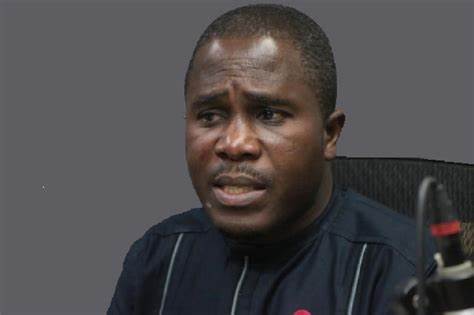The Executive Director of the Institute for Energy Security (IES) Nana Amoasi VII, has accused the government of “suppressing information in the energy sector.”
He said this was in contrast to previous years when the public could easily access information on the power supply for proper analysis and suggestions to improve the sector.
There have been concerns about unstable power in recent times largely caused by the government's inability to pay millions of dollars owed to independent power producers. However, the government has not been fully open about the real challenges facing the sector.
Speaking on JoyNews' News File on Saturday, November 23, Nana Amoasi said, "We have so much to address, and it will require heavy investment and several years to return to where we were, at least back to the state we were in early 2017."
According to him, "data on power generation and transmission is now harder to find, unlike the Gridco system which was shut down and replaced by a command sector that provides data only to select key people and stakeholders in the industry.
He provided an example, noting that ordinary data sheets generated from Gridco are now classified as private and confidential.
Additionally, he pointed out that information on the amount of power being exported is now restricted.
Elaborating on his point, Nana Amoasi said "We are blinded in this sector" and rhetorically questioned, "What is there to hide?"
He concluded by saying, "We believe the government has not been efficient or effective in utilizing the opportunities and resources entrusted to it".
Ghana shouldn’t have experienced any ‘dumsor’ after 2017
Nana Amoasi VII said the country shouldn't have experienced frequent power outages, commonly known as 'dumsor', since 2017, considering all the necessary capacity to generate and supply power for consumption without any hindrances were in place.
“With the opportunities and resources entrusted to the current government in 2017, we shouldn’t have been experiencing 'dumsor' at all because we had a high installed capacity, a very dependable capacity of 4,300 megawatts,” he said.
He further explained that the country currently has a dependable capacity of 5,100 megawatts but “we are struggling to produce power to the extent of just 3,100 megawatts".
Read Also: Ghana shouldn’t have experienced any ‘dumsor’ after 2017 – IES Boss
Latest Stories
-
Ghanaian community in Côte d’Ivoire pushes for Chamber of Commerce to boost cross-border trade
10 minutes -
The Joshua of Our Time: Why Dr Bryan Acheampong is the right leader to guide the NPP into its promised future
25 minutes -
Public Financial Management Act must be enforced – Yaw Appiah Lartey on damning Auditor‑General’s findings
28 minutes -
Absa Bank Ghana hosts Youth Festival to empower young entrepreneurs
29 minutes -
WPRD Festival 2025 closes with PR fireside chat on leadership
38 minutes -
Afrofuture and WatsUp TV launch nationwide Rising Star Challenge on university campuses
47 minutes -
Auditor-General report: Heads must roll among technical officers, not just politicians – Dr. Eric Oduro Osae
54 minutes -
Ghana must rethink internal audit to defeat corruption
57 minutes -
CIMG engages BoG to deepen collaborations
1 hour -
Hey big spenders – Liverpool lead top-four domination of £1bn deals
1 hour -
UK-Ghana industrial ties celebrated as British High Commissioner visits Springs and Bolts factory
1 hour -
Discontinuation of UniBank case: Adongo calls for national discourse
1 hour -
uniBank case: The decision creates avenue to loot – Kwadwo Poku criticises AG’s move to drop Duffuor case
1 hour -
US diplomats asked if non-whites qualify for Trump refugee program for South Africans
2 hours -
Medikal set to headline WatsUp On Campus this Saturday at Cape Coast Technical University
2 hours

